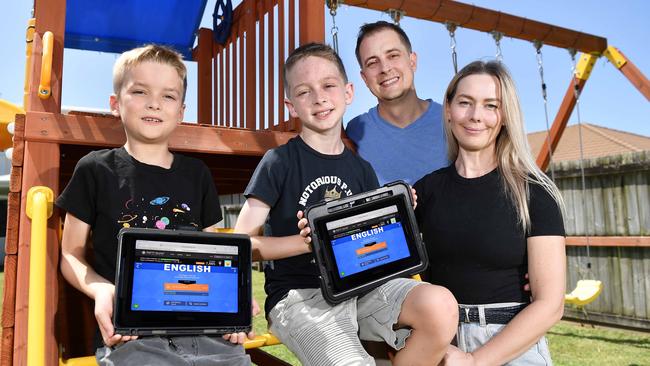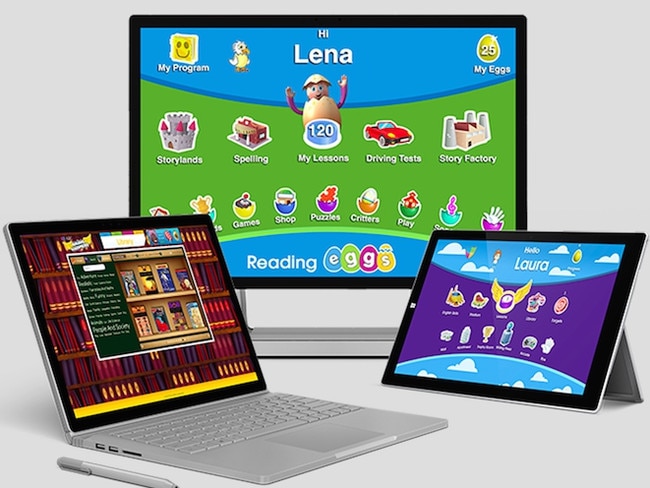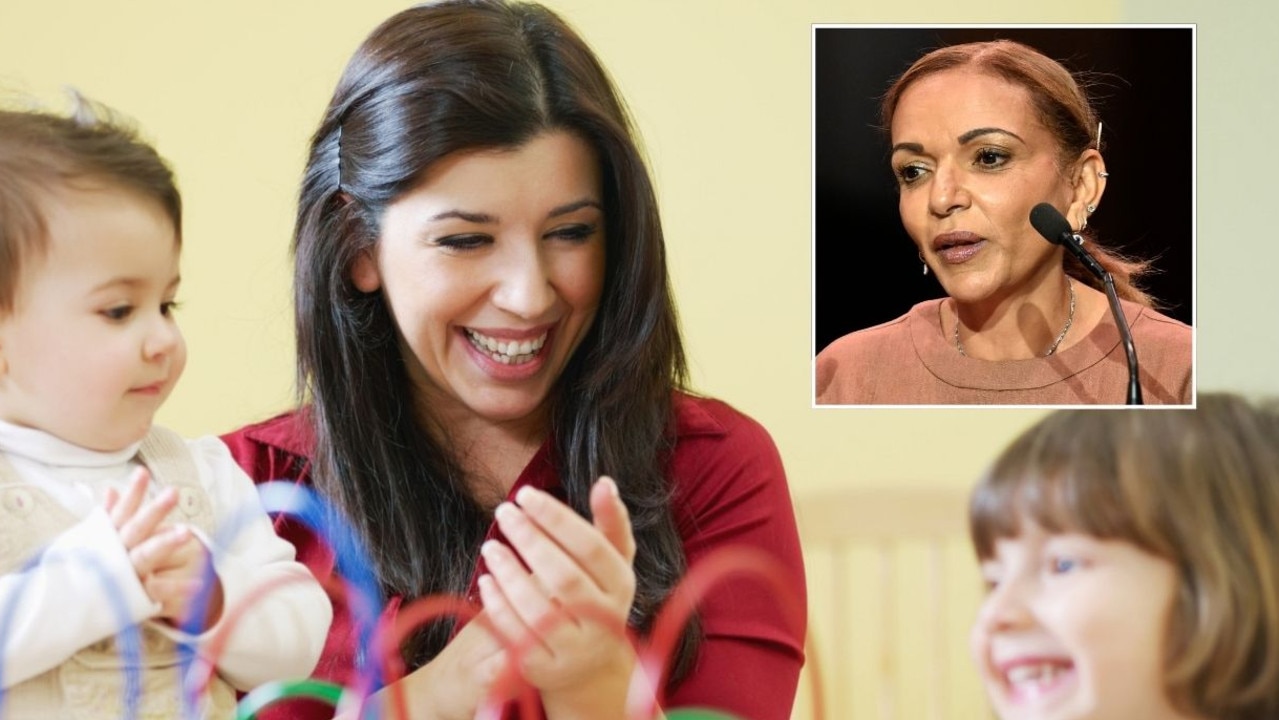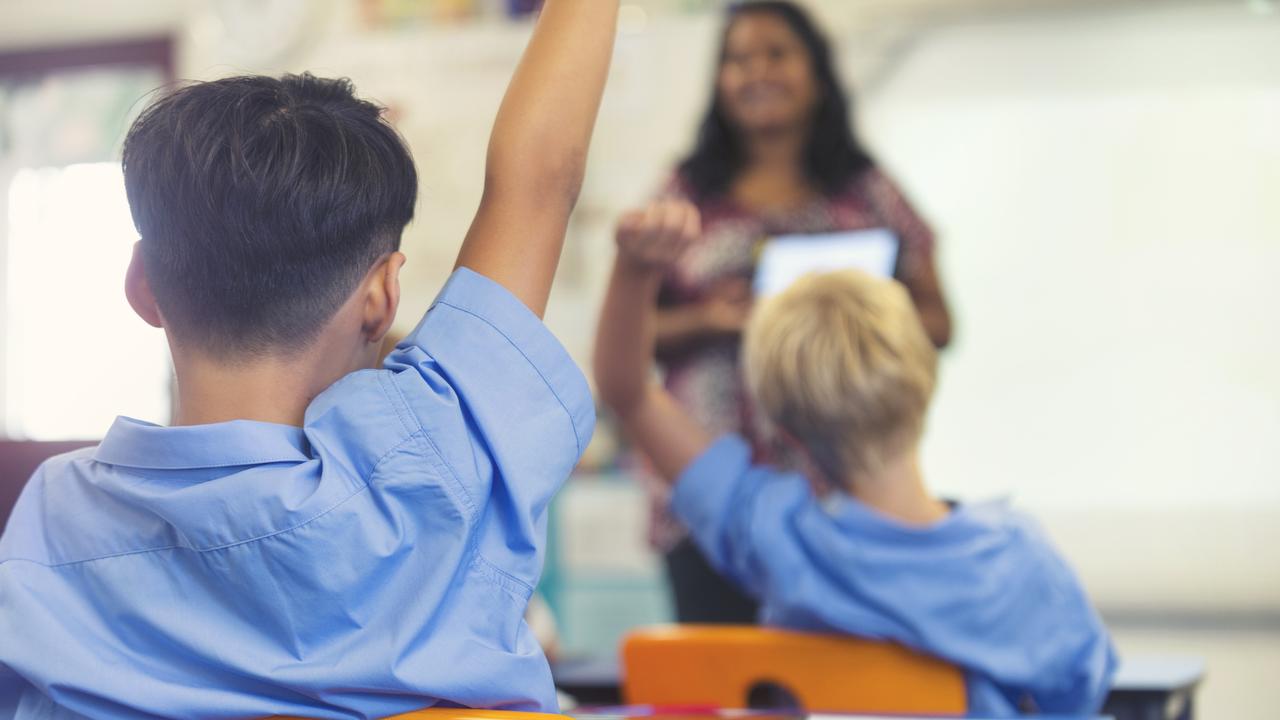Back to school: The best educational apps for your child
Educational apps are leading the change for learning both in and outside classrooms across the country with parents, experts and principals revealing their tips and tricks ahead of the start of school.

Early Education
Don't miss out on the headlines from Early Education. Followed categories will be added to My News.
Educational apps are leading the change for learning both in and outside classrooms across the country, with parents, experts and principals revealing their tips and tricks ahead of the school year.
For mother of two Nicole Chapman, a number of educational English and maths applications made a world of difference for sons Harry, 9 and William, 8.
“We started to look into apps like Reading Eggs and in-person tutoring like NumberWorks’nWords to support them further in those early years,” she said.
Mrs Chapman said her sons mostly enjoyed Kinetic Education – an Australia-wide application that includes both tutors and online learning through games, tests, lessons and questions.
“Recently, Harry was doing grade seven and eight English in grade four, so I contacted the service and asked them to put it back to his year level so he would stay engaged,” she said.
The app also has options to prepare students for NAPLAN such as practice tests.

Mrs Chapman said her kids also enjoyed Prodigy, which combines mathematics with games such as quests, pets, adventures and playing with friends.
Australian Catholic University (ACU) digital literacy researcher Professor Kathy Mills said educational apps had become “quite sophisticated” in recent years.
“I think a lot of apps, like things you might download on an iPhone or an iPad, tend to be very skill and drill, which is sort of like rote learning, and I think those have a place, but we do see that more in the primary and early childhood space,” she said.
“However, having said that, you know, really little kids, like three-year-olds, could probably benefit from seeing, you know, the letter ‘A’ pop up a certain number of times before they can recognise it.”
When it came to high school students, Prof Mills said older students could benefit from more immersive creative and problem-solving apps.
“If you were looking at sort of the middle school and the senior school, you really are wanting students to have opportunities to problem solve, to be strategic in their thinking, to use 3D to understand 3D design, for example,” she said.
Prof Mills said available apps depended on the device.
“Even things like Google Tilt Brush, although it just seems like a lot of fun because you’re painting in the air, it’s a 3D visual design space that is audio and visually animated.”
For mathematics, Prof Mills said Targeting Maths was “very aligned’ with the Queensland curriculum for younger year levels.
“If we want something that’s, you know, just on iPhone apps, high schoolers can learn a second language through Duolingo,” she said.
“There’s also a lot of cool brainstorming apps that you can just use for an iPad. So things like Popplet is great, and teachers use it to get kids to just note-take and put down ideas in a sort of visual display.
“Things like Google Docs is just somewhere where kids can hang an assignment and upload their Word doc.
“They could use something like Mural, which is a sort of group brainstorming app, so they can sort of put Post-it notes and have a discussion.”
When it came to NAPLAN preparation, Prof Mills said teaching to the test could limit a child’s learning.
“The research shows it’s not a good idea to try to teach to the test,” she said.
“This is actually a big thing in that … it narrows the curriculum.
“I would be encouraging parents to do valuable learning experiences that sit outside NAPLAN, as opposed to trying to target NAPLAN.”
Griffith University education lecturer and researcher Carolyn Wade said there were apps available for both high school and primary school students that are suitable for all levels.
“Many schools already subscribe to great apps like Studyladder and Reading Eggs and these programs often offer dual access for home and school,” Ms Wade said.
She said that for younger students, Reading Doctor and Sounds-Write build fundamental reading skills needed for NAPLAN.
Meanwhile, Ms Wade said for numeracy, Mathletics, Number Pieces and Prodigy were also effective.





